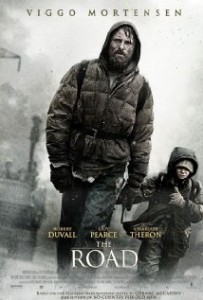 I’ve a weakness for dystopian literature (think Cormac McCarthy’s The Road). The premise of these books is a disaster th
I’ve a weakness for dystopian literature (think Cormac McCarthy’s The Road). The premise of these books is a disaster th at fundamentally alters the trajectory of the planet. The apocalypse is typically human-caused, some act that taps into our collective guilt about environmental degradation, warlust or technological hubris.
at fundamentally alters the trajectory of the planet. The apocalypse is typically human-caused, some act that taps into our collective guilt about environmental degradation, warlust or technological hubris.
An economist’s dystopia is portrayed in Kurt Vonnegut’s Player Piano. Instead of a despoiled planet or some biological or digital monster, Vonnegut’s first novel portrays a society nearly bereft of work. Set at a thinly disguised General Electric (where Vonnegut once worked), World War III prompts an acceleration in automation, allowing the U.S. to win the war. A decade later, automation has become near total. The only people needed are the very best engineers, who spend their days seeking new efficiencies, displacing yet more human involvement. They’ve been freed from work—utopia, right? Read more »